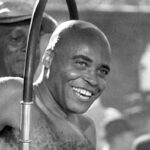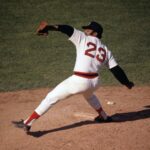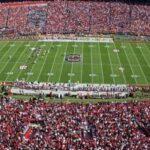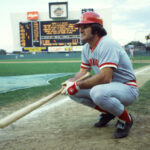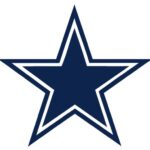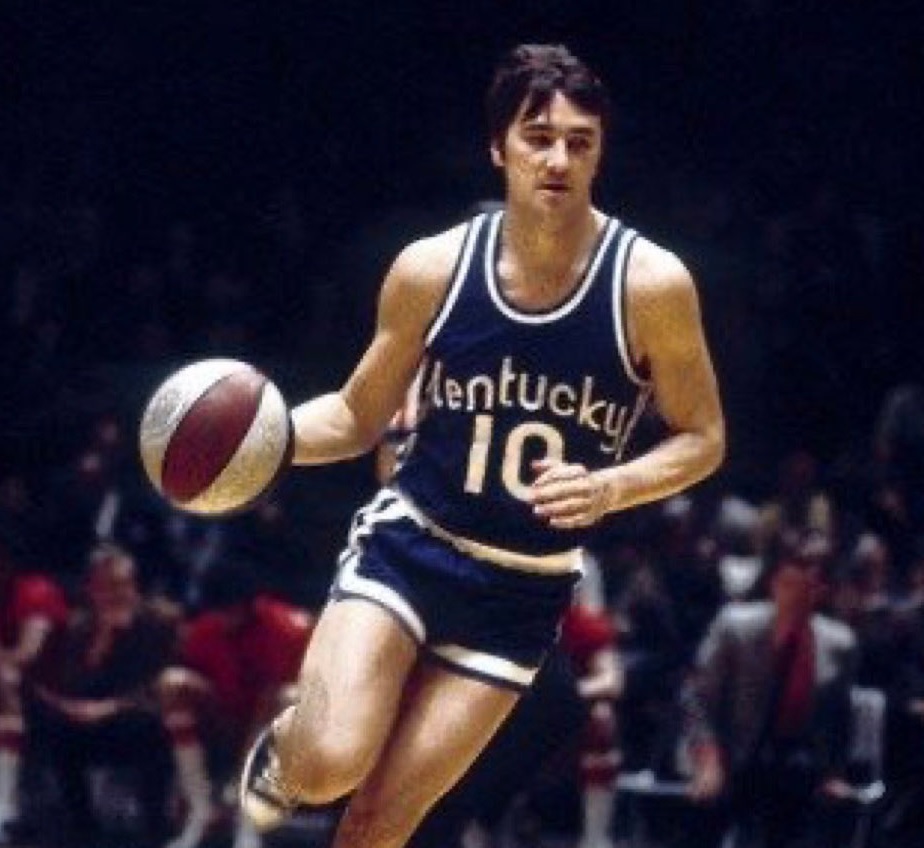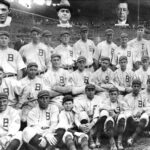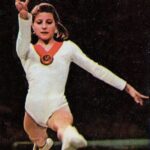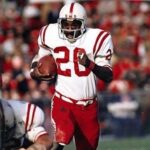35 Years Ago: Celtics and Suns Play the Greatest NBA Finals Game Ever

Celtics center Dave Cowens and Suns center Alvan Adams were the central figures as the 1976 NBA Finals began.
When the Phoenix Suns met up with the Boston Celtics in the 1976 NBA Finals, most observers expected a short series.
The Celtics were the dominant franchise in the NBA with their dynasty in the late 1950s and 1960s with 11 championships in 13 years.
After a brief down period following the retirement of Bill Russell, the Celtics once again rose to the top of the league when they won the 1974 NBA title.
Former Celtics great Tom Heinsohn was the coach of this new generation of Celtics that featured center Dave Cowens, Paul Silas, and Jo Jo White, but included former sixth man and Celtic hero, John Havlicek.
In 1976, the Celtics won 54 games during the regular season and advance to the NBA Finals after a pair of six-game playoff series victories over the Buffalo Braves and Cleveland Cavaliers.
On the other end of the spectrum were the Phoenix Suns, an expansion team who had not done much in their first seven years of existence.
The 1976 season seemed to be another lost effort as the Suns lost 18 of 24 games during the middle of the season.
But lead by head coach John MacLeod, the Suns caught fire in the last part of the regular season, winning 10 of their last 13 games, to finish with a 42-40 record, but good enough for the team’s first playoff berth since 1970
With a core of players that included rookie of the year Alvin Adams and Paul Westphal who Phoenix acquired in a trade from Boston during the offseason, the Suns knocked off the Seattle Supersonics in six games to advance to the Western Conference Finals, where they shocked the defending NBA champion Golden State Warriors in seven games, to advance to their first NBA Finals.
The veteran Celtics won the first two games easily in Boston Garden, but the “Sunderllas” as they become to known as for their remarkable run, won the next two games in Phoenix, to force a pivotal Game 5 in Boston Garden.
What appeared to be a rout in the beginning of the game, turned into the wildest game in NBA Finals history.
The Celtics got off to a hot start as they jumped out to a 20-5 lead in the first quarter, which eventually became 32-12 after the first nine minutes.
The opening quarter ended with Boston leading comfortably 36-18, thanks to 13 first quarter points by Havlicek.
The lead grew to 22 points in the second quarter before the Suns were able to get on track and cut some of the margin before the end of the half, trimming the Celtics’ lead to 16 points, at 61-45.
Slowly but surely, Phoenix was getting back in the game.
As the second half began, the Suns stepped up their defense by forcing began the Celtics to take more outside shots, which Boston had trouble converting.
This allowed the Suns to tie the game at 68, late in the third quarter, before the Celtics pulled out to a five-point lead at 77-72 as the quarter come to an end.
The Celtics still had the lead in the final minute of the fourth quarter when the Suns made the first of their numerous comebacks in this game.
After a Westphal basket cut the lead to 94-91, the Suns got a steal when Westphal poked the ball away from White, which was grabbed by Dennis Awtrey, who then made a full-court pass to Westphal, who was able to make a lay-up as he was fouled to set up a potential three-point play.
Westphal made the free throw and the Suns had tied the game at 94 with 39 seconds to go.
Then the Suns had a chance to take their first lead of the game when they stopped the Celtics again and Curtis Perry was fouled with 23 seconds left, sending him to the foul line with two free throws.
Perry only made one of the free throws, but it was still enough to give Phoenix a 95-94 lead.
If the Suns could come with another defensive stop, the game would be theirs.
But disaster struck for Phoenix when Adams fouled out of the game when he tried to block a Havlicek jumper with 19 seconds to go.
Now, Havlicek was at the line with two free throws and to give the Celtics the lead back.
Havlicek made the first free throw, but missed the second free throw, only to have Cowens rebound it and giving Havlicek another chance to win the game.
But Havlicek missed his 17-footer and the ball was rebounded by the Suns with three seconds left, giving Phoenix a chance to win the game.
However, the Suns could not take advantage as Garfield Heard’s potential game-winning shot was no good, sending the game into overtime tied at 95.
Both teams played tough defense in the overtime period as only eight points were scored in the first three minutes of the period, six of them by the Celtics as they held a 101-97 lead with 1:56 to go.
But once again the Suns came back as baskets by Curtis Perry and Garfield Heard tied the game at 101.
The Suns had a chance to win the game at the end of the first overtime period, but were unable to get the game-winning basket as Paul Silas grabbed a missed Phoenix shot with three seconds remaining.
That is where the game’s most controversial moment occurred.
After he grabbed the rebound, Silas signaled for a timeout.
The problem was the Celtics had no timeouts and thus Silas’ call for a timeout was a technical foul and one free throw for the Suns.
However, referee Richie Powers and the other officials did not recognize or acknowledge that Silas called timeout, and allowed the final three seconds to run off the clock and denying Phoenix a chance to win the game in the first overtime period.
So, the game went into a second overtime tied at 101.
In the second overtime, the Suns grabbed a 106-105 lead before the Celtics reeled off four straight points, the last two by White on a lay-up, to put the Celtics in command again at 109-106 with 19 seconds left.
With no three-point line in 1976, the Suns had to make a basket, then hope for a steal or missed free throws to tie or win the game.
They got the basket when Dick Van Arsdale drilled a 20-foot jumper with 12 seconds to go, trimming the lead to 109-108.
Then, the improbable happened, as the Suns got the steal they needed when Westphal was able to knock the ball out of Havilcek’s hands and passed it to Perry, who took an 18-foot shot from the left side and missed.
But the rebound came back to Perry, who then proceeded to drill a 15-footer to give the Suns a 110-109 lead with five seconds left, stunning the partisan Boston Garden crowd.
The Celtics had one last chance to avoid going down 3-2, and they looked to Havlicek one more time to bail Boston out, even though he failed to come up with the winning play in this game.
From mid-court, Don Nelson inbounded the ball to Havlicek, who ran down the left side of the line, and launched a leaning shot from 15 foot out, that bounced off the backboard and into the net, for a game-winning basket as the clock ran to zero.
The Celtics had won 110-109 as the fans began to rush the parquet floor in celebration of Boston’s dramatic victory and taking a 3-2 series lead.
But wait a minute…the game was not over.
As it turned Havlicek’s shot went into the basket with two seconds to go, thus the Suns were to have one more chance to win the game.
When referee Richie Powers told the scorers table to put time back on the clock, he was attacked by an enraged Celtics fan.
Fortunately, the fan did not do any serious harm to Powers and was arrested immediately.
Once order was restored and the Celtic players came back on to the court, one second was put back on the clock.
Then, Westphal went to Powers and called for a timeout, even though the Suns did not have a timeout.
This time, Powers did see the signal for a timeout and called a technical foul on the Suns, giving the Celtics a free throw.
White made the free throw to increase the Celtics a 112-110 lead.
But the Suns would be given the ball at half court instead of underneath the basket, giving Phoenix a better chance to make a shot and tie the game again.
Still, the odds seemed remote that the Suns would be able to make the shot.
The ball was given to Perry, who found Heard at the top of the key, and inbounded the ball to him.

Gar Heard's last-second basket stunned the Boston Garden crowd and sent the game into triple overtime.
Heard then turned away and with Nelson in his face, launched a jumper as time expired.
The basket was good!
Amazingly, the Suns had once again dodged defeat and forced another overtime period with the game tied at 112, leading to Suns radio broadcaster Al McCoy to say “Somebody must be on our side up there” after the game-tying basket.
Heard’s miraculous shot became known as the “Shot Heard Round’ the World”.
AS the game went into its third overtime period, numerous players began to drop out of the game because of fouls.
To go along with Adams, Awtrey had fouled out for the Suns, while the Celtics lost to Cowens, Scott, and Silas to fouls.
Both teams needed one of their reserves to come up and make a contribution.
And it would be the Celtics who would get that contribution from a little used second-year forward from Long Beach State in Glenn McDonald.
Though the first two and a half overtime periods, McDonald had only scored two points, but late in the third overtime period, he scored some key points for the Celtics.
First, he took a pass from White and made a lay-up to put Boston ahead 120-118 with 1:35 to go.
Then after a defensive stop, McDonald made a 12-foot fade away jumper to increase the lead to four points at 122-118 with 1:14 to go.
Finally, he made two clutch free throws with 36 seconds to go to make it 126-120 in favor of Boston.

Celtics reserve Glenn McDonald became an unlikely hero as he scored six points in the third overtime period.
It appeared that the Suns were finally done as the Celtics held a 128-122 lead as the final seconds ticked off the third overtime.
Westphal made a basket to cut it 128-124, then stole the ball, and made a lay-up to cut it 128-126 with 12 seconds to go.
Westphal then raced down the floor in an effort to make one last steal, but he could not get his hands on the inbounds pass, as White was able to catch it and then dribble out the clock to end the marathon game and give the Celtics a 128-126 triple overtime victory and a 3-2 series lead.
The game was so draining that Celtics head coach Tom Heinsohn collapsed in the locker room and went to the hospital for exhaustion.
Heinsohn checked out of the hospital two days later in the Celtics’ 87-80 win in Phoenix, clinching the franchise’s 13th NBA title.
But when NBA and Celtics fans look back on that championship, they share the spotlight with the runner-up Phoenix Suns, whose refusal to lose, help produce the greatest game in NBA history.



